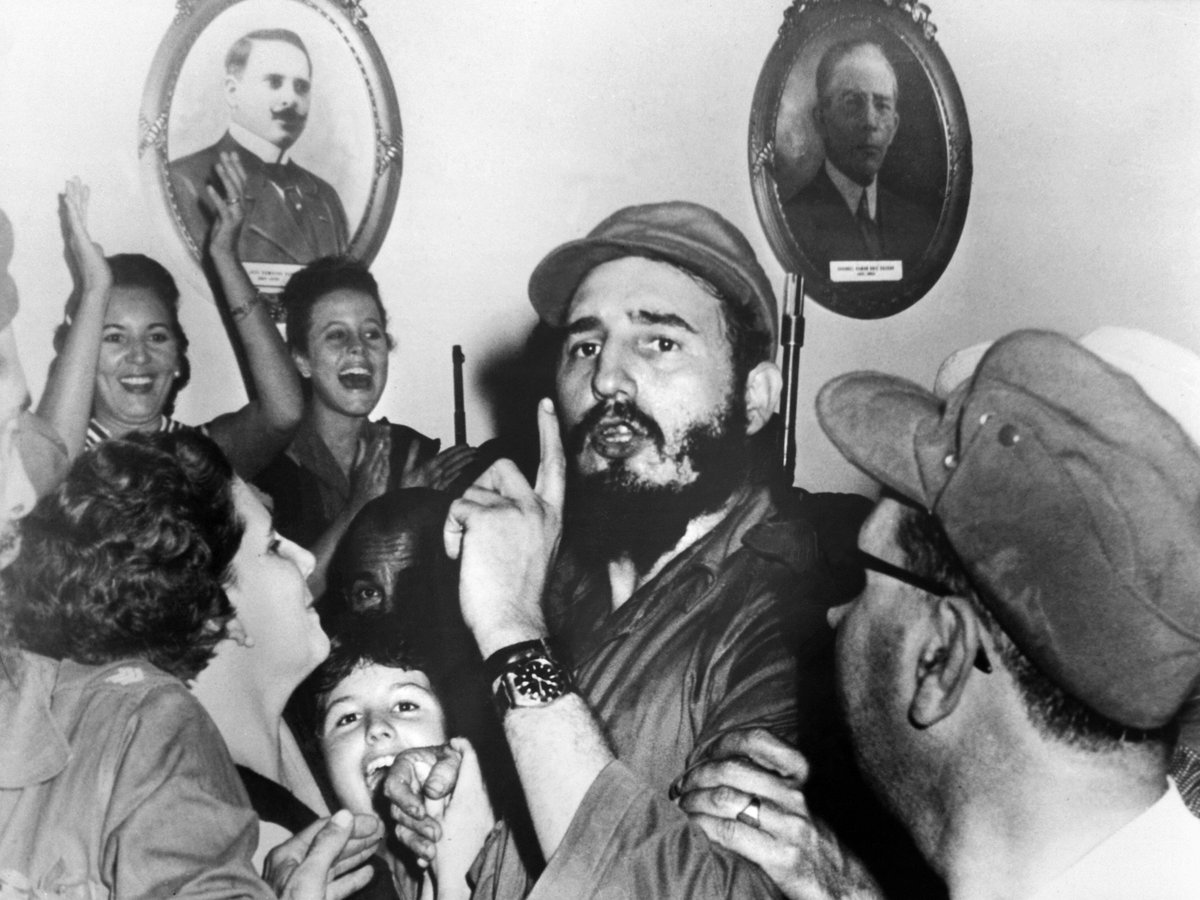
What does it mean to be a Black Hispanic in Miami?
For Yvonne Rodriguez, who lives in West Miami, it means enduring casual racism from her white Hispanic neighbors: "What's up, mi negra?" 🧵 trib.al/g7QOUOi
For Yvonne Rodriguez, who lives in West Miami, it means enduring casual racism from her white Hispanic neighbors: "What's up, mi negra?" 🧵 trib.al/g7QOUOi
Even as a second-generation Cuban American, Rodriguez finds her cultural identity put under constant questioning.
“It is psychologically exhausting to try to convince someone that you are just as much of a Latino as them.”
“It is psychologically exhausting to try to convince someone that you are just as much of a Latino as them.”
After Miamians mobilized in near-daily protests to demand justice following the police killing of George Floyd, some Afro-Latinos had hoped that a meaningful racial reckoning was finally on the horizon for Miami’s Hispanic community.
Rodriguez wasn't so optimistic.
Rodriguez wasn't so optimistic.

South Florida faces a unique set of challenges.
Here, systemic racism combines with colorism issues imported from Latin America.
Here, systemic racism combines with colorism issues imported from Latin America.
Rodriguez's skepticism was not entirely unfounded.
A countermovement materialized almost immediately — carrying on through the November election and into 2021.
A countermovement materialized almost immediately — carrying on through the November election and into 2021.
Within weeks of Floyd’s death in Minneapolis, a much-discussed counterprotest to Black Lives Matter demonstrations was organized by the group Cubans4Trump in Miami Lakes. 

“They were literally carrying signs saying Black Lives Matter ‘es socialista, es comunista,’” said Raymond Adderly, of Cubanos Pa’Lante, an alliance of progressive Cuban Americans.
“That was the reality of Miami in the summer and all the way up until November, and even now.”
“That was the reality of Miami in the summer and all the way up until November, and even now.”
But others still see opportunity for dialogue and change.
Leilani Bruce, who was born in Miami to a Cuban mom and a Jamaican dad, helped launch the Candela book club, which centers around Black voices and Afro-Cuban stories.
Leilani Bruce, who was born in Miami to a Cuban mom and a Jamaican dad, helped launch the Candela book club, which centers around Black voices and Afro-Cuban stories.

The book club is a way to “drive the conversation forward and learn about Afro-Cuban history, and unpack some of the issues around race in the Cuban community,” she said.
Adderly, from Cubanos Pa’lante, would also welcome more nuance when it comes to discussing Black stories in the Hispanic context.
“It’s more than Celia. It’s my story. It’s my grandma’s story. ... I just found out recently that my grandma’s family were slaves in Cuba.”
“It’s more than Celia. It’s my story. It’s my grandma’s story. ... I just found out recently that my grandma’s family were slaves in Cuba.”
“That’s a story to tell," he said.
"And it’s not being told because it’s overshadowed by the white Cuban story of success in Miami.” trib.al/g7QOUOi
"And it’s not being told because it’s overshadowed by the white Cuban story of success in Miami.” trib.al/g7QOUOi

Follow @elnuevoherald's @lautarogrinspan for more on race issues in Miami's Hispanic communities.
• • •
Missing some Tweet in this thread? You can try to
force a refresh






